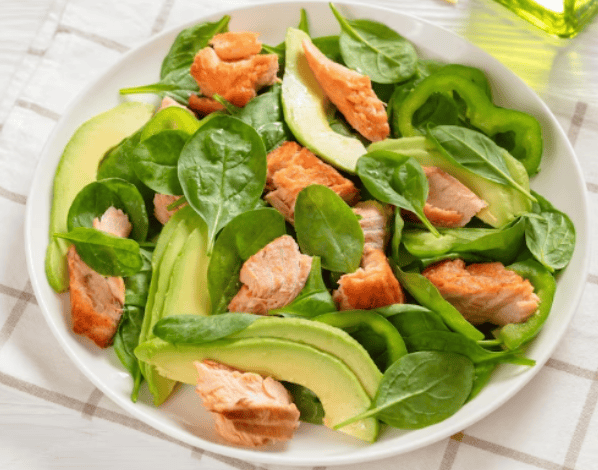We’ve all heard the phrase, “You are what you eat,” but does that wisdom apply to your skin? For years, the connection between diet and skin health was dismissed as anecdotal or oversimplified. However, growing scientific evidence suggests there’s more to this story than old wives’ tales.
From acne and eczema to dullness and premature aging, research now shows that what you eat can influence your complexion in powerful ways. Certain foods may fuel inflammation or oil production, while others supply nutrients essential for skin repair, hydration, and elasticity. Although genetics and skincare routines play a role, your plate could be quietly shaping the health of your skin.
In this article, we’ll explore how your diet can help—or harm—your skin. You’ll learn which foods to embrace for a healthy glow and which ones may be sabotaging your skin from the inside out. Whether you’re battling breakouts or simply aiming for a more radiant complexion, this evidence-based guide will help you make more informed choices.
The Skin–Diet Connection: What Science Says
Your skin is more than just a protective layer—it’s a living organ deeply influenced by your internal health. Emerging research highlights a strong connection between nutrition and skin health, revealing how what you eat can shape your complexion.
Recent studies have linked certain dietary patterns to common skin conditions like acne, eczema, and signs of aging. For instance, diets high in sugar and refined carbs can trigger inflammation, which aggravates acne and accelerates skin aging. Similarly, excessive consumption of dairy products has been associated with worsening eczema symptoms in some individuals.
Two key biological processes explain much of this connection: inflammation and glycation. Inflammation occurs when your body reacts to harmful stimuli, potentially leading to redness, swelling, and skin sensitivity. Glycation, on the other hand, happens when excess sugar molecules bind to collagen, damaging its structure and contributing to wrinkles and loss of elasticity.
While genetics undoubtedly influence your skin’s appearance, diet is a powerful modifier that you can control. Adjusting your food choices can reduce inflammation and support healthy collagen, promoting a clearer, more youthful complexion.
Understanding the science behind diet and complexion empowers you to make informed decisions that benefit your skin from the inside out.
Foods That Improve Skin Health

When it comes to glowing, healthy skin, the saying “you are what you eat” rings especially true. Choosing the right foods for healthy skin can make a noticeable difference in your complexion, texture, and overall skin health. Here are some top skin-friendly foods backed by science, along with tips on how to add them to your diet.
1. Fatty Fish
Fatty fish like salmon, mackerel, and sardines are rich in omega-3 fatty acids, which are known to reduce inflammation and support skin hydration. Omega-3s help maintain the skin’s lipid barrier, preventing dryness and irritation. Plus, these healthy fats can improve the skin’s elasticity, keeping it supple and youthful.
How to enjoy: Grill or bake salmon for a delicious dinner, or add canned sardines to salads and sandwiches.
2. Avocados
Packed with vitamin E and healthy monounsaturated fats, avocados are excellent for nourishing the skin. Vitamin E is a powerful antioxidant that protects skin cells from damage, while the fats help keep skin soft and moisturized.
How to enjoy: Mash avocado for toast, blend into smoothies, or add slices to your salads.
3. Sweet Potatoes
Sweet potatoes are loaded with beta-carotene, a precursor to vitamin A that acts as a natural sunscreen. Beta-carotene helps protect skin against sun damage and promotes cell turnover, leading to brighter, healthier skin.
How to enjoy: Roast sweet potato cubes as a side dish or mash them for a comforting snack.
4. Leafy Greens
Spinach, kale, and other leafy greens are rich in antioxidants like vitamins C and E, which combat free radicals that cause premature aging and blemishes. These greens also provide folate, which supports healthy cell growth.
How to enjoy: Toss them into salads, blend into green smoothies, or sauté as a side.
5. Berries
Berries such as blueberries, strawberries, and raspberries are packed with polyphenols and vitamin C, both crucial for collagen production. Collagen is the protein responsible for skin’s firmness and resilience.
How to enjoy: Snack on fresh berries, add them to yogurt, or blend into smoothies.
6. Nuts & Seeds
Almonds, walnuts, flaxseeds, and sunflower seeds offer zinc, selenium, and vitamin E—nutrients essential for skin repair and protection. Zinc helps reduce inflammation and acne, while selenium defends against UV damage.
How to enjoy: Sprinkle seeds on oatmeal or yogurt, or enjoy a handful of nuts as a snack.
7. Green Tea
Green tea is rich in catechins, antioxidants that help support skin moisture, elasticity, and reduce redness caused by sun exposure. It also has anti-inflammatory properties that soothe sensitive skin.
How to enjoy: Sip on freshly brewed green tea daily or use cooled green tea as a refreshing facial toner.
Incorporating these skin-friendly foods into your daily meals supports overall skin health and contributes to the best diet for clear skin. Remember, balanced nutrition paired with good skincare habits creates the perfect recipe for radiant skin from within.
Foods That May Harm Skin

While certain foods can boost your skin’s health, others may have the opposite effect—especially if eaten in excess. Understanding which foods can trigger common skin issues helps you make smarter choices without feeling restricted.
Sugar and Refined Carbs
High intake of sugar and refined carbohydrates—think white bread, pastries, and sugary drinks—can cause spikes in insulin. This hormonal surge increases oil production in the skin, which may lead to clogged pores and breakouts. This link between sugar and skin problems is backed by multiple studies showing that a high-glycemic diet worsens acne severity.
Dairy
For some people, dairy products like milk and cheese can trigger acne flare-ups. While the relationship isn’t the same for everyone, hormones and bioactive molecules in dairy may influence oil glands and inflammation. This connection between dairy and acne suggests moderation is key rather than total avoidance unless you notice clear worsening of your skin.
Fried and Greasy Foods
Foods high in unhealthy fats and oils can promote oxidative stress—an imbalance that damages skin cells—and contribute to clogged pores. While greasy food itself doesn’t directly cause acne, it can worsen existing skin problems and dull your complexion.
Alcohol
Alcohol dehydrates the skin and impairs your body’s natural detox pathways. Chronic drinking may reduce skin elasticity and worsen redness or puffiness. Occasional indulgence is fine, but drinking in moderation helps maintain healthy, hydrated skin.
Rather than eliminating these foods completely, aiming for moderation is a practical, sustainable approach. Paying attention to how your skin reacts after eating certain foods can help you find your personal balance.
Diet and Specific Skin Conditions
Your diet plays a crucial role in managing various skin concerns, from acne to aging. Understanding how nutrition impacts specific conditions can help you tailor your eating habits for better results.
Acne
Research shows that foods with a high glycemic load—like sugary snacks and white bread—can trigger spikes in blood sugar and insulin. This promotes excess oil production and inflammation, leading to breakouts. Dairy products have also been linked to acne, possibly due to hormones and bioactive compounds influencing skin oil glands.
Balancing your intake of omega-3 fatty acids, found in fatty fish and flaxseeds, can help reduce inflammation and improve acne symptoms. Overall, focusing on a low-glycemic, balanced diet supports clearer skin.
Eczema and Psoriasis
Inflammatory foods such as processed meats, fried items, and excessive sugar can worsen eczema and psoriasis symptoms. Additionally, some individuals may experience food intolerances (like gluten or dairy) that trigger flare-ups. An anti-inflammatory diet for skin, rich in fruits, vegetables, whole grains, and healthy fats, may reduce redness, itching, and discomfort associated with these conditions.
Aging
Diets rich in antioxidants—such as vitamins C and E, polyphenols from berries, and green tea catechins—can slow visible signs of aging. These nutrients protect skin cells from oxidative stress and support collagen production, helping maintain firmness and elasticity.
Dry or Oily Skin
Hydration is vital for all skin types. Drinking enough water and eating foods with essential fatty acids (like avocados, nuts, and seeds) helps maintain balanced moisture levels. For oily skin, reducing inflammatory and high-glycemic foods can help control excess sebum production.
By choosing the right foods, you provide your skin with targeted support. Whether it’s managing acne or slowing aging, good nutrition for skin conditions is a powerful tool in your skincare arsenal.
Diet and Skin FAQs
Can changing my diet clear up my acne?
Diet changes can definitely help reduce acne for some people, especially if they cut back on high-glycemic foods like sugar and refined carbs, and limit dairy intake. However, results vary depending on individual factors like genetics and lifestyle. Diet isn’t a quick fix but part of a holistic approach to clearer skin.
How long does it take to see results from dietary changes?
Skin renewal takes time. Most people start noticing improvements in about 4 to 8 weeks after making consistent, healthy dietary changes. Patience and consistency are key—your skin needs time to heal and adjust.
Do I need supplements if I eat well for my skin?
If your diet is balanced and rich in fruits, vegetables, healthy fats, and lean proteins, supplements may not be necessary. However, in cases of deficiency or specific skin concerns, supplements like omega-3s or antioxidants can provide added support. Always check with a healthcare provider before starting supplements.
Is drinking more water really that important for skin?
Staying hydrated helps maintain skin’s moisture and elasticity, but drinking excessive amounts won’t necessarily clear skin problems. It’s one part of a bigger picture, which includes diet, skincare, and overall health.
Conclusion: Nourish Your Skin from Within
While diet isn’t a miracle cure for every skin issue, it plays a vital role as part of a strong support system. Focusing on whole, nutrient-dense foods gives your body—and your skin—the building blocks it needs to stay healthy, resilient, and radiant.
Your skin truly reflects your internal health, and what you eat can either support or challenge your complexion. By making mindful choices and embracing the power of nutrition, you’re setting the stage for clearer, younger-looking skin.
Remember, the journey to glowing skin starts on your plate. With balanced eating habits, you can take confident steps toward better diet and skin health—and enjoy the benefits of a vibrant food and complexion connection every day.
